Dark Money, Super PACs, and the 2012 Election
LEXINGTON STUDIES IN POLITICAL COMMUNICATION
Series Editor: Robert E. Denton, Jr.,
Virginia Polytechnic Institute
and State University
This series encourages focused work examining the role and function of communication in the realm of politics including campaigns and elections, media, and political institutions.
Recent Titles in the Series
Rhetorical Criticism: Perspectives in Action, Edited by Jim A. Kuypers
Almost Madam President: Why Hillary Clinton Won in 2008, By Nichola D. Gutgold
Cracked But Not Shattered: Hillary Rodham Clintons Unsuccessful Run for the Presidency, Edited by Theodore F. Sheckels
Gender and Political Communication in America: Rhetoric, Representation, and Display, Edited by Janis L. Edwards
Communicator-in-Chief: How Barack Obama Used New Media Technology to Win the White House, Edited by John Allen Hendricks and Robert E. Denton, Jr.
Centrist Rhetoric: The Production of Political Transcendence in the Clinton Presidency, By Antonio de Velasco
Studies of Identity in the 2008 Presidential Campaign, Edited by Robert E. Denton, Jr.
Campaign Finance Reform: The Political Shell Game, By Melissa M. Smith, Glenda C. Williams, Larry Powell, and Gary A. Copeland
Us against Them: The Political Culture of Talk Radio, By Randy Bobbitt
Internet Policy in China: A Field Study of Internet Cafs, By Helen Sun
A Communication Universe: Manifestations of Meaning, Stagings of Significance, By Igor E. Klyukanov
The Perfect Response: Studies of the Rhetorical Personality, By Gary C. Woodward
Presidential Campaign Rhetoric in an Age of Confessional Politics, By Brian T. Kaylor
Manipulating Images: World War II Mobilization of Women through Magazine Advertising, By Tawnya J. Adkins Covert
The Politics of Style and the Style of Politics, Edited by Barry Brummett
Communication Realities in a "Post-Racial" Society: What the U.S. Public Really Thinks about Barack Obama, By Mark P. Orbe
Politics and the Twitter Revolution: How Tweets Influence the Relationship between Political Leaders and the Public, By John H. Parmelee and Shannon L. Bichard
Coming to Terms: The Collected Works of Jane Blankenship, Edited by Janette K. Muir
The Rhetoric of Soft Power: Public Diplomacy in Global Contexts, By Craig Hayden
Gender and the American Presidency: Nine Presidential Women and the Barriers They Faced, By Theodore F. Sheckels, Nichola D. Gutgold, and Diana Bartelli Carlin
The George W. Bush Presidency: A Rhetorical Perspective, edited by Robert E. Denton, Jr.
Dark Money, Super PACs, and the 2012 Election, by Melissa M. Smith and Larry Powell
Dark Money, Super PACs, and the 2012 Election
Melissa M. Smith and Larry Powell
LEXINGTON BOOKS
Lanham Boulder New York Toronto Plymouth, UK
Published by Lexington Books
A wholly owned subsidiary of Rowman & Littlefield
4501 Forbes Boulevard, Suite 200, Lanham, Maryland 20706
www.rowman.com
10 Thornbury Road, Plymouth PL6 7PP, United Kingdom
Copyright 2013 by Lexington Books
All rights reserved. No part of this book may be reproduced in any form or by any electronic or mechanical means, including information storage and retrieval systems, without written permission from the publisher, except by a reviewer who may quote passages in a review.
British Library Cataloguing in Publication Information Available
Library of Congress Cataloging-in-Publication Data
Library of Congress Cataloging-in-Publication Data Available
ISBN 978-0-7391-8541-4 (cloth : alk. paper)
 TM The paper used in this publication meets the minimum requirements of American National Standard for Information Sciences Permanence of Paper for Printed Library Materials, ANSI/NISO Z39.48-1992.
TM The paper used in this publication meets the minimum requirements of American National Standard for Information Sciences Permanence of Paper for Printed Library Materials, ANSI/NISO Z39.48-1992.
Printed in the United States of America
Acknowledgments
Melissa Smith thanks her two favorite guys, Barry and Matthew, for their love and support. I appreciate your patience while I spent hours working on this very fun project. Matthew, now we can go outside and play.
Larry Powell would like to thank his wife, Clarine Powell, for her tolerance as he obsessively worked on something that he enjoyed doing. He would also like to express his appreciation to Dr. Mark Hickson for his inspiration, leadership and motivation.
Chapter 1
Introduction: The Genesis of Super PACs in the 2010 Midterm Elections
Things got off to a rocky start for Democrats on January 19, 2010, when Republican Scott Brown was unexpectedly elected to the Senate seat that Ted Kennedy had held for almost half a century. Browns election triggered concerns among Democrats going into a midterm election year, because midterm elections have traditionally been dangerous to members of the party in power at the White House. Some wondered if this was a one-time anomaly or a sneak-peek at fall elections.
Just two days later the United States Supreme Court released its opinion on the Citizens United v. FEC case, setting the stage for what would be known as Super PACs to begin forming in support of 2010 Congressional candidates. While Republicans embraced the ability to form Political Action Committees fueled by unlimited corporate and union funds, Democrats opposed the ruling, stating fears that it could unleash a tide of corporate and special-interest money into the political process.
As it turns out, Browns election was a harbinger of things to come for Democrats that year, as most shied away from using Super PACs, while Republicans embraced them. What ensued has been described as a disaster and a crushing defeat for Democrats, as the party lost sixty-three seats in the House of Representatives and six in the Senate.
While it may seem odd to start a book discussing the 2012 elections a full two years earlier, it is important to understand how pivotal the 2010 elections were for the Democratic Party and how Democratic losses set the stage for an increased presence of Super PACs in the 2012 race. In some ways, the Democratic response to the United States Supreme Court ruling in the Citizens United case was an example of a political party refusing to participate in a major change of rules in the election process. This refusal, and its impact on the elections, taught the party a hard lesson that many vowed not to repeat in 2012. This chapter will examine the Citizens United ruling, as well as the SpeechNow.org v. FEC case, both of which helped pave the way for Super PAC formation. It will also examine the responses of both the Republican and Democratic parties in the first federal elections held after those rulings.
Citizens United v. FEC
In Citizens United v. Federal Election Commission, the court considered whether an anti-Hillary Clinton documentary produced during the 2008 presidential campaign violated restrictions on corporate spending in federal elections. The documentary was produced by Citizens United, an ideologically based group that takes for-profit corporate funding. The group wanted to air the documentary during the Democratic Party primary through a cable television video on demand service and sponsor advertisements for it on television. A cable television operator consortium would have made it available (in exchange for a $1.2 million fee) free on demand as part of an Election 2008 series.
The FEC blocked the move, saying it was basically a long political ad promoting the defeat of a specific candidate, plus it had been produced by an advocacy group that had accepted corporate contributions. The Bipartisan Campaign Reform Act of 2002 barred corporate-funded television broadcasts just before both primaries and general elections. The FEC ruling was challenged by Citizens United, which argued that it limited the constitutional speech of corporations, unions, and trade organizations.

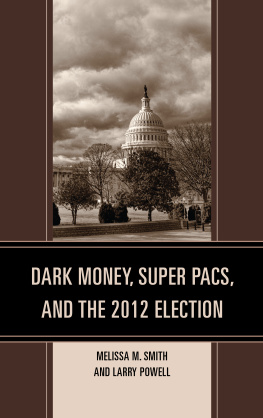

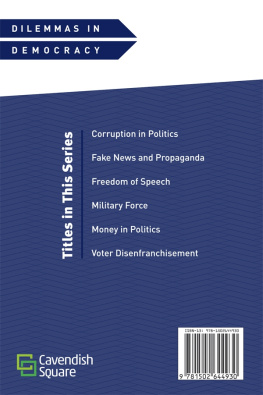
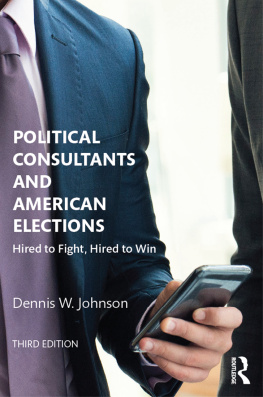
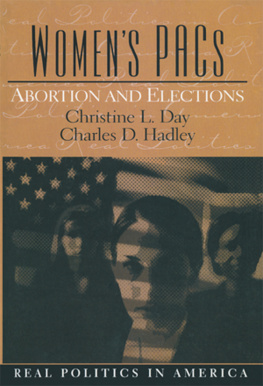
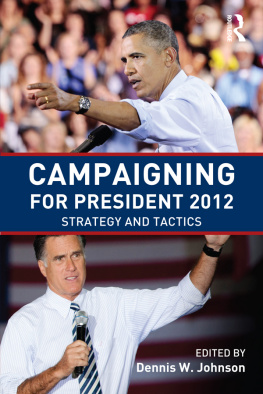
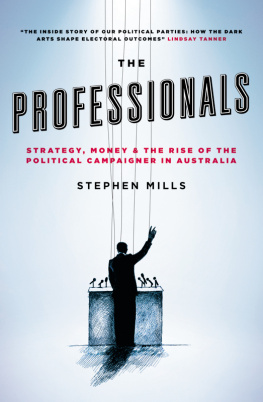
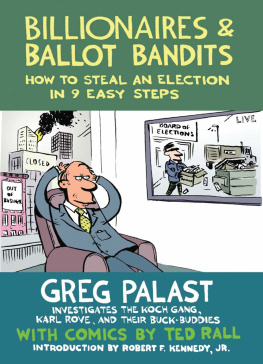
 TM The paper used in this publication meets the minimum requirements of American National Standard for Information Sciences Permanence of Paper for Printed Library Materials, ANSI/NISO Z39.48-1992.
TM The paper used in this publication meets the minimum requirements of American National Standard for Information Sciences Permanence of Paper for Printed Library Materials, ANSI/NISO Z39.48-1992.